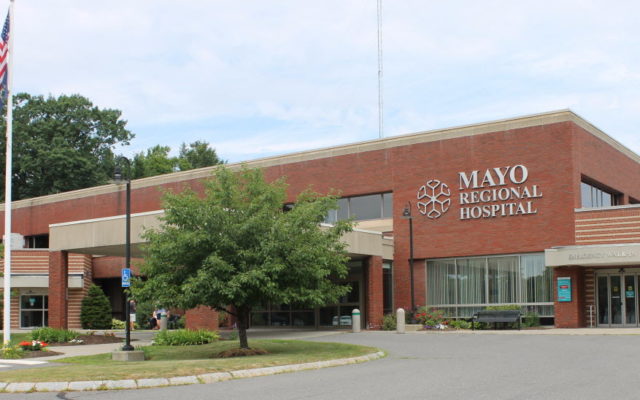
Hospital board votes to tax member communities to cover debt service
DOVER-FOXCROFT — On Feb. 27 the board that oversees Mayo Regional Hospital (Hospital Administrative District 4) voted 14-2 to tax the 13 communities it serves should it need to in order to balance its debt service. Two board members abstained and one member was absent.
“This was an extraordinarily difficult decision to reach,” Mayo Regional Hospital President and CEO Marie Vienneau said. “Money is tight for everyone and the last thing we wanted to do was place an additional tax burden on the people in these communities. But this hospital is a small, rural hospital faced with rising costs and increased challenges. In order for us to survive, changes must be made. While we are tightening our belt as much as possible, we still must ensure quality care. These additional taxes will ensure that quality care for people living here.”
Because Mayo Regional Hospital is owned and operated as a HAD, its board is made up of members who are elected by the communities served by the hospital. HAD 4 is the only HAD left in Maine, and is a quasi-governmental agency with taxing power. Tax bills cannot be issued until after Oct. 1, and the board is hopeful this will not come to reality. However, the towns are currently doing their budgets for next year and need to know potential obligations.
Each of the 13 member communities will be responsible for a particular amount of money approved by the HAD 4 board Feb. 27. The total amount of the tax in 2019 would be a little more than $1 million.
Also that night, the board voted 15-3 to proceed with a potential merger with Northern Light Health. Several steps must still be undertaken for the merger to be permitted, including a change in the state charter for HAD 4, approval by the Northern Light Health Board, and a state review of the merger through a formal Certificate of Need application and analysis process. But if the merger were to pass, it would transform the HAD into a Maine charitable tax-exempt nonprofit corporation that would have a community-based board, but not taxing authority. This would relieve the towns in the HAD from potential liability for the certain indebtedness of the hospital.
“Health care is changing,” Vienneau said. “Being a HAD 40 years ago gave rural hospitals certain opportunities. But things have evolved to the point where that model has become very expensive for the communities we serve. We are working hard and taking important steps to find a better solution to sustain quality care in this region.”